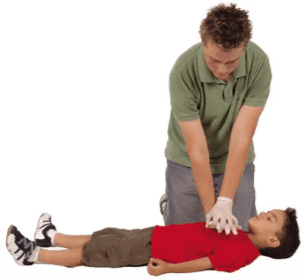 Day 38 of Lockdown
Day 38 of Lockdown
Day 38, does it seem shorter if I say about 5½ weeks? Anyway, today’s update starts with a new service being offered by our local hospitals for those with loved ones unable to be visited. It then continues with:
- Colchester & Ipswich Museums want you to send in your COVID-19/Lockdown stories.
- ECC is piloting a new approach to COVID-19 testing in Care Homes for Public Health England.
- Alan Smart of AJS First Aid has passed on an important update from the Resuscitation Council for those trained in CPR & Resuscitation, and, of course,
- Some downtime at the end.
Letters to Loved Ones
Keeping in touch with loved ones in hospitals run by East Suffolk and North Essex NHS Foundation Trust (ESNEFT) is being made easier thanks to a new email and message service. While visiting is restricted at the Trust, messages can now be sent to friends or relatives in hospital through the Letters to Loved Ones service. You can either email or leave a voicemail to your loved one for the team to deliver.
To send a message to a loved one, all you need to do is email [email protected].
Simply follow the instructions below:
- Start a new email
- Subject – Please write ‘Letters to Loved Ones’
- At the top of the message please put your loved one’s:
- First name.
- Last name.
- Date of birth.
- Which hospital they are in.
- The ward they are on (if you know it).
Without this information we are unable to guarantee the message will reach the recipient.
- Within your message, please be mindful of the information you share. Don’t disclose anything confidential or too personal. You may want to include a photograph too.
- Don’t forget to let your loved one know who you are
- Double check you have typed in the following email address correctly and press send to [email protected]
- Do let us know if there are any special requirements for your message. For example, it will need to be read to the patient, it needs to be in large print, English is not the patient’s first language.
VoiceMail Option
If you do not have access to email, don’t worry. You can leave a voicemail for a loved one by calling 07876 843039 and the message will be passed on.
The Letters to Loved Ones email service and telephone line will be monitored from 8am to 3pm, Monday to Sunday (excluding Bank Holidays). You will be sent an acknowledgement email to say we have received your message and it will be passed on to your loved one within 24 hours. ESNEFT’s Patient Experience and End of Life teams, with support from the Trust’s Butterfly Volunteers, are running the service. They will not collect or share any personal data, including email addresses, or any other information contained within the body of an email other than for the purpose that it is intended.
 Museums Collecting Your COVID-19 Stories
Museums Collecting Your COVID-19 Stories
In just a few short months, Covid-19 has changed the landscape across the world and will continue to do so for the immediate future.
Colchester + Ipswich Museums are one of many museums, libraries and universities appealing to the public to help them understand what effect this pandemic is having on the general public and to record their findings for future generations.
We are all living through unprecedented times and with this brings a wealth of emotions, experiences and a shared collective – something this generation has never experienced before.
Colchester + Ipswich museums would, therefore, like to hear from you.
They are seeking volunteers from both Colchester and Ipswich to help them record and understand this pandemic. They are looking for people to record their experiences in a variety of ways. This could take the form of a diary, a scrapbook, through paintings and drawings, maybe song-writing or even creating a video journal.
Are you already recording your stories? If not, would you like to start? If so, the Museums team would love to hear from you.
They are looking for as many people to get involved as possible, to ensure the collecting project reflects society as it is now, in 2020. Get involved at:
Bored?
Don’t forget that the museums also have a Museum-From-Home section on their website with lots of activities to try out:
 Care Home Testing
Care Home Testing
Essex County Council, in partnership with Public Health England (PHE), is piloting a new approach to minimise deaths due to COVID-19 in care homes in the county.
Care homes are especially vulnerable to infection due to the frailty of residents and social distancing struggles to be effective in a close-knit care home-setting.
Figures issued this week from Care Quality Commission (CQC) has been confirmed that up to and including 27th April 2020, 263 deaths due to COVID-19 have occurred in care home in Essex, Southend and Thurrock.
To combat these rising figures, Essex County Council and PHE are piloting a new approach to care home infection across the county.
The pilot approach involves:
- Any home with one suspected case should contact ECC and PHE within 24 hours. ECC will arrange infection control support from NHS infection control teams.
- All staff and residents in the identified home will then be tested. This is because in a study elsewhere the numbers with no symptoms and positive tests was substantial.
- Homes will be able to contact a rapid response team at Essex County Council, or Public Health England’s response cell.
For homes with no cases, the new approach under discussion is to regularly test staff and residents. Essex County Council is now developing a strategy to shield homes with no cases, and shielding will need to go on for some months.
For homes with established outbreaks, Essex County Council will work with the homes to establish the best infection control practice advised by PHE and NHS infection control teams.
 CPR & Resuscitation in a COVID-19 World
CPR & Resuscitation in a COVID-19 World
Alan Smart of AJS First Aid training has passed on an important update from the Resuscitation Council. This is for anyone who finds themselves having to perform CPR/Defibrillation in an out of hospital setting during the current climate.
Whenever CPR is carried out, particularly on an unknown victim, there is some risk of cross-infection, associated particularly with giving rescue breaths. Normally, this risk is minimal and is set against the inevitability that a person in cardiac arrest will die if no assistance is given. The first things to do are shout for help and dial 999.
Watch what to do in an emergency.
- First responders should consult the latest advice on the NHS website ( https://www.gov.uk/government/publications/novel-coronavirus-2019-ncov-interim-guidance-for-first-responders/interim-guidance-for-first-responders-and-others-in-close-contact-with-symptomatic-people-with-potential-2019-ncov).
- Those laypeople and first responders with a duty of care (workplace first-aiders, sports coaches etc.) that may include CPR should be guided by their employer’s advice.
- This guidance may change based on increasing experience in the care of patients with COVID-19.
- Healthcare workers should consult the recommendations from the WHO and DH&SC for further information. Advice by nation is at the conclusion of this statement.
Resuscitation Council UK Guidelines 2015 state:
Give chest compression-only CPR if you are untrained or unable to do rescue breaths. (I.e. continuous compressions at a rate of at least 100–120 min-1).
More COVID-19 Specific Advice
Because of the heightened awareness of the possibility that the victim may have COVID-19, Resuscitation Council UK offers this advice:
- Recognise cardiac arrest by looking for the absence of signs of life and the absence of normal breathing. Do not listen or feel for breathing by placing your ear and cheek close to the patient’s mouth. If you are in any doubt about confirming cardiac arrest, the default position is to start chest compressions until help arrives.
- Make sure an ambulance is on its way. When you call 999, tell them if COVID-19 is suspected.
- If there is a perceived risk of infection, rescuers should place a cloth/towel over the victims mouth and nose and attempt compression only CPR and early defibrillation until the ambulance (or advanced care team) arrives. Put hands together in the middle of the chest and push hard and fast.
- Early use of a defibrillator significantly increases the person’s chances of survival and does not increase risk of infection.
- If the rescuer has access to personal protective equipment (PPE) (e.g. FFP3 face mask, disposable gloves, eye protection), these should be worn.
- After performing compression-only CPR, all rescuers should wash their hands thoroughly with soap and water; alcohol-based hand gel is a convenient alternative. They should also seek advice from the NHS 111 coronavirus advice service or medical adviser.
Paediatric advice
We are aware that paediatric cardiac arrest is unlikely to be caused by a cardiac problem. It is more likely to be a respiratory one, making ventilations crucial to the child’s chances of survival. However, for those not trained in paediatric resuscitation, the most important thing is to act quickly to ensure the child gets the treatment they need in the critical situation.
For out-of-hospital cardiac arrest, the importance of calling an ambulance and taking immediate action cannot be stressed highly enough. If a child is not breathing normally and no actions are taken, their heart will stop and full cardiac arrest will occur. Therefore, if there is any doubt about what to do, this statement should be used.
It is likely that the child/infant having an out-of-hospital cardiac arrest will be known to you. We accept that doing rescue breaths will increase the risk of transmitting the COVID-19 virus, either to the rescuer or the child/infant. However, this risk is small compared to the risk of taking no action as this will result in certain cardiac arrest and the death of the child.
Further reading
- Public Health Wales statement on Novel Coronavirus (COVID-19) outbreak: https://phw.nhs.wales/news/public-health-wales-statement-on-novel-coronavirus-outbreak/
- Coronavirus (Covid-19) updates for Northern Ireland: https://www.health-ni.gov.uk/coronavirus\
- COVID-19: guidance for health professionals [Public Health England]: https://www.gov.uk/government/collections/wuhan-novel-coronavirus
- Coronavirus (Covid-19) [Health Protection Scotland]: https://www.hps.scot.nhs.uk/a-to-z-of-topics/covid-19/
Further pointers from Alan
Alan has also advised that you should use the following guidelines:-
- Wear Gloves.
- As shown a towel or similar to place over nose mouth!
- When we carry out chest compressions air is released through the nose and mouth in droplet form, thus the possible spread of infection, in this case COVID-19.
- Remember we are trained as first aiders.
- Check Danger, make sure area is safe to proceed.
- Do not check airway or breathing.
- Shake shoulders in normal manner.
- Ask are you alright!
- If no response call 999 and inform the service of what is taking place and that the patient may have Covid 19; follow instructions.
Another COVID-19 Parody
This time of Natalie Imbruglia’s Torn.





